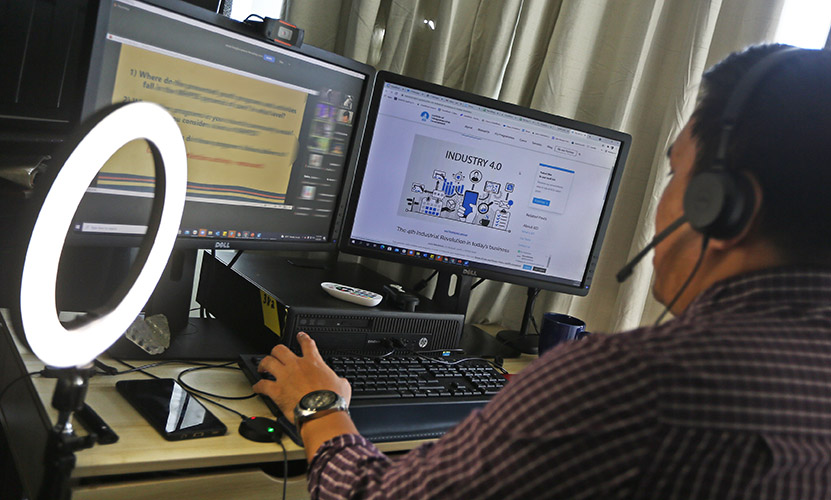In sustaining the country’s recovery from the economic impact of the COVID-19 pandemic, Senator Win Gatchalian pressed the importance of equipping learners and the workforce with the needed skills for the Fourth Industrial Revolution (Industry 4.0).
- Gatchalian cited the need for the education sector, including K to 12 schools, to ensure the readiness of learners for the “jobs of the future”;
- The Philippines, for example, is struggling to meet the demand for data science and analytics (DSA) professionals;
- In ensuring workforce preparedness for Industry 4.0, Gatchalian also cited the example of Singapore’s SkillsFuture, a statutory board under the Ministry of Education, which offers programs and subsidies to reskill and upskill students, employers, and employees.

Gatchalian cited the need for the education sector, including K to 12 schools, to ensure the readiness of learners for the “jobs of the future,” especially as industries adopt more technologies to accelerate automation and digitalization. The World Economic Forum’s (WEF) The Future of Jobs Report released in 2020 enumerated the Top 15 Skills for 2025, which include analytical thinking and innovation, active learning and learning strategies, complex problem-solving, and various skills related to technology use.
The same report from the WEF also pointed out that across industries, there is an increasing demand for job roles such as Data Analysts and Scientists, Artificial Intelligence (AI) and Machine Learning Specialists, Big Data Specialists, Digital Marketing and Strategy Specialists, and Process Automation Specialists.
The WEF report, however, identified perceived barriers to the adoption of new technologies. For the companies surveyed in the report, top three barriers include skills gaps in the local labor market (55.4%), inability to attract special talent (46.7%), and skills gaps among organization’s leadership (41.4%).
The Philippines, for example, is struggling to meet the demand for data science and analytics (DSA) professionals. A 2020 research paper by state think-tank Philippine Institute for Development Studies (PIDS) noted that in 2019, 10 DSA-related undergraduate programs produced 176,597 professionals of 10 various disciplines. However, only 62,583 or 38% were assessed to be ready to shift to DSA.
“We have to put emphasis on the skills that we need to support the jobs in the Fourth Industrial Revolution and in a digitalized world. Businesses are adopting to it to navigate through the post pandemic world,” said Gatchalian, Chairman of the Senate Committee on Basic Education, Arts and Culture.
“Everything is going to be about critical thinking, analysis, and motivation. These are the skills that our basic education institutions should look at because I really believe that all of these skills should be built at an early age,” he added.
In ensuring workforce preparedness for Industry 4.0, Gatchalian also cited the example of Singapore’s SkillsFuture, a statutory board under the Ministry of Education, which offers programs and subsidies to reskill and upskill students, employers, and employees at various stages of their careers.


